There was a time till very recently, we saw very few movies made with people of color as central characters. But slowly but surely, American society and by extension, Hollywood has been concerned about the under-representation of minorities. We thought of putting together a list of movies that are about persecution of minorities. Here’s the list of best movies about people of color. You can watch several of these best minority movies on Netflix, Hulu or Amazon Prime.
10. Harold and Kumar Escape From Guantanamo Bay (2008)

Part of a comedy trilogy starring Kal Penn and John Cho as Kumar and Harold respectively, this movie is filled with crass slapstick humor and is not at all on the same note of seriousness as the other films on this list. Yet through gross exaggeration and parodying, this movie accurately and brilliantly captures the paranoia of white Americans towards other ethnicities post 9/11. The story follows the duo lighting up a bong on a flight to Amsterdam when they are mistaken for terrorists (Al Qaeda and North Koreans) and sent to Guantanamo without any trial or justice. While it is a comedy, the underlying message is disturbing all the more because it is based on facts. A lot of minority ethnic groups were in fact sent to Guantanamo and tortured without trials post 9/11. Furthermore, the casual racism by the head of the task force hunting the two boys (remember the Kool Aid grape juice being used to bribe a black man?) makes the message of the film hard hitting. White Americans even after all this time in modern society, still hold on to their racial prejudices.
9. To Kill a Mocking Bird (1962)
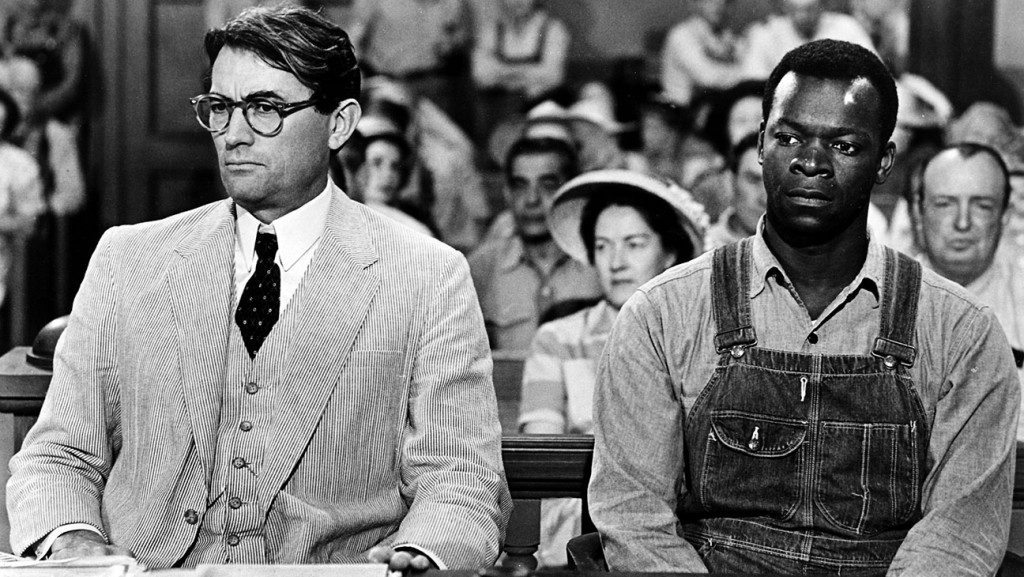
Based on Harper Lee’s Pulitzer prize winning novel, this film directed by Robert Mulligan stars Gregory Peck in the role of Atticus Finch. The story follows Finch, a lawyer who defends a black man for the alleged rape of a white woman. The tale is gripping and powerful in itself and Peck delivers a power packed performance. However, the brilliance of the narrative and of the movie too derives from the fact that the persecution of black people and the hatred for them was so strong that it also extended to white people who stood up for them. In fact, even after the accused was executed in an alleged attempt to flee, the family of Finch came under attack for having defended the man. The film delivers a strong message that society at that point of time sought to silence even good people who were open to accepting people of different ethnicities.
8. Malcolm X (1992)
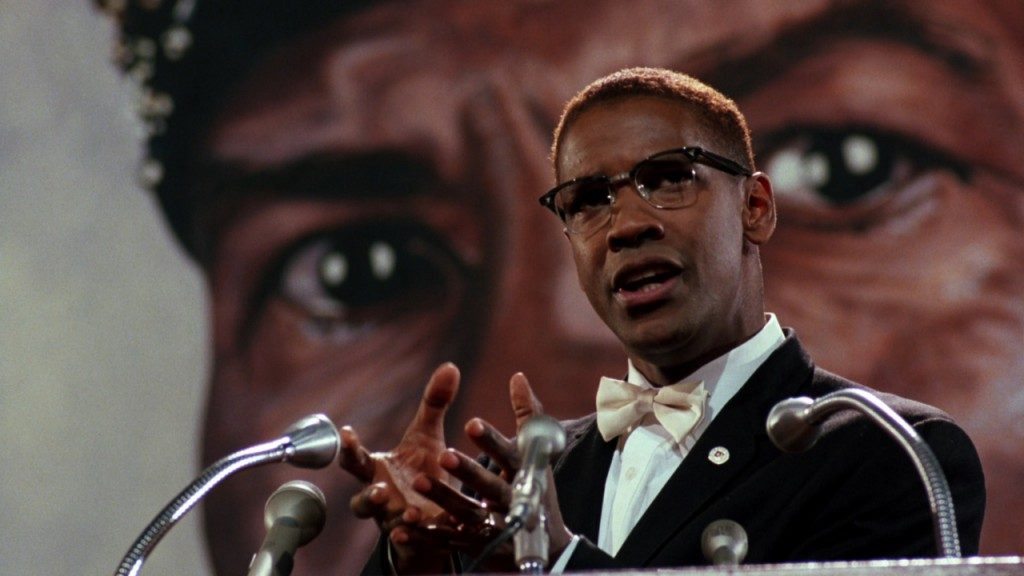
Directed by Spike Lee, starring Denzel Washington in the titular role, this story follows the life of Malcolm Little, better known as Malcolm X. It is a story of the consequences of years of persecution and a possible reconciliation with the perpetrators. Malcolm who previously preached a doctrine of ethnic homogeneity, which was in fact a mirror of what the white supremacists were doing, is introduced to Islam and becomes much more accepting. He too turns to peaceful coexistence instead of wanting a separation in black society. While the film does not deal with persecution of the black people directly, it is based strongly on the theme of consequences of years of persecution and an attempt of reconciliation on the part of both parties as a heterogeneous modern American society began to emerge.
7. Milk (2008)
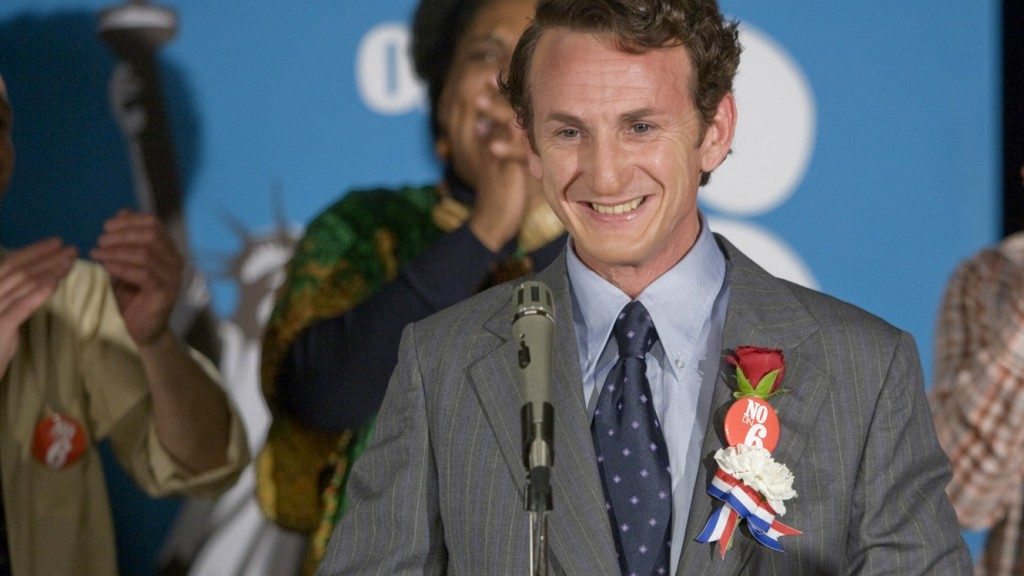
Directed by Gus Van Sant, this film explores persecution of a very different group of people – LGBTQ. Not very many films in Hollywood do that and this film stands out for having not only made this group a subject matter but for having done it fantastically well. The story itself follows the life of Harvey Milk played by Sean Penn, the first openly gay person who was elected to public office in California. The film expertly shows the police raids on gay bars and the lack of acceptance from a Irish Catholic neighborhood for what they considered as unnatural. It is a tale of hope, however, as Milk does win against all odds, lobbies to change people’s mindsets and perhaps makes American society the accepting society that it is today.
6. Schindler’s List (1993)
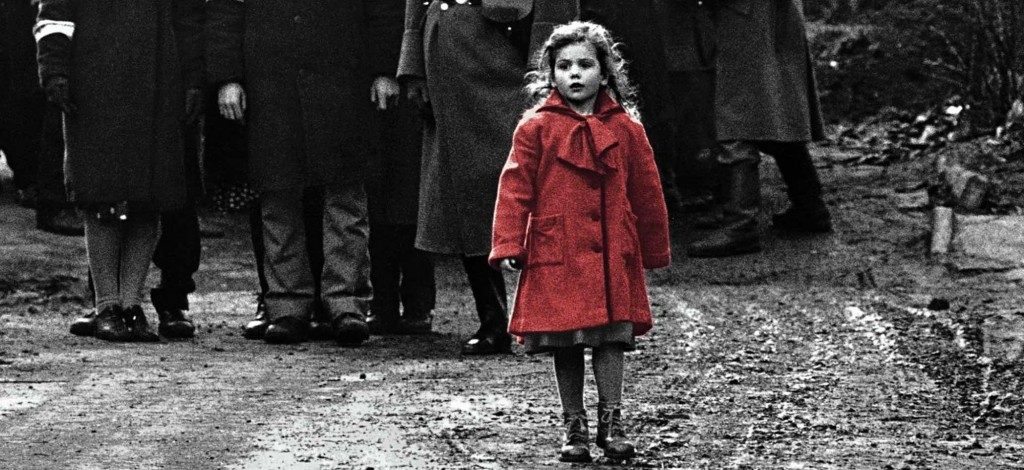
This Steven Spielberg directed film is one of the most acclaimed films of Hollywood and no list on minority persecution is complete without it. A film that traces the life of Oskar Schindler, a man who experiences the atrocities that the Jews faced at the hands of the Nazis, and grows a conscience. He single-handedly saves a lot of Jewish people from being transported to Auschwitz. The film which is shot black and white with a documentary like approach captures to a fine degree of accuracy, the tyranny inflicted on the Jews by the Third Reich.
5. American History X (1998)
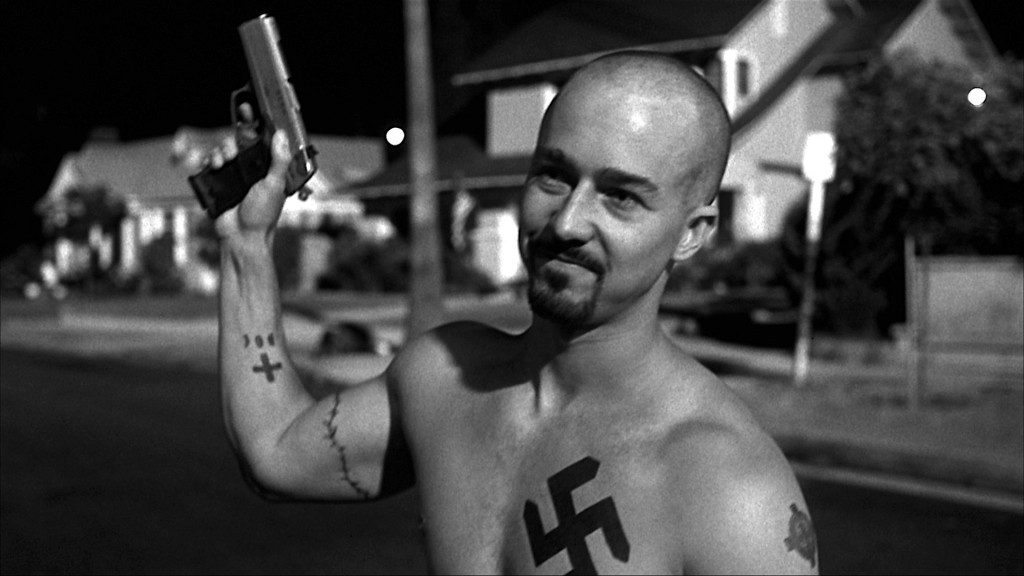
Directed by Tony Kaye this crime drama takes on the persecution of minorities from the perspective of the perpetrators. Derek, a former member of a Neo-Nazi party tries to dissuade his brother from following his footsteps. An excellently made film, it explores the psyche of the perpetrators and what leads them to mistreat other ethnic groups. It is a reformatory story and shows both Derek and his younger brother Danny give up on their hatred and realizing that life was about coexistence. The tragic ending of the film where *SPOILER ALERT* Danny is killed by a black kid named Little Henry serves to reinforce the message that hatred breeds hatred. It is one of the finest films on persecution of minorities and its consequences to have ever come out of Hollywood.
4. Inglorious Basterds (2009)
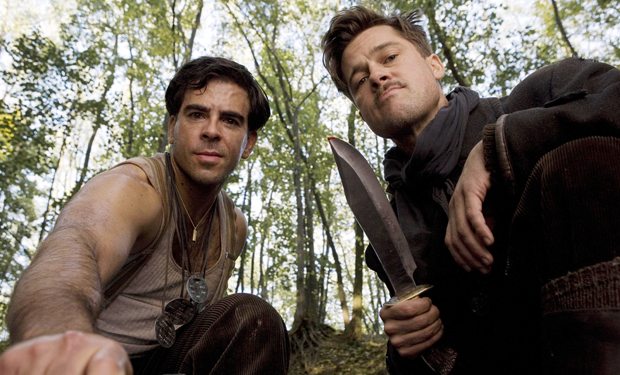
Another excellent film by Quentin Tarantino where he explores the persecution of Jews by Nazis. While the film is rife with brutal techniques employed by the Nazis and the eternal fear that the Jews lived in, as evident by the first scene where SS Colonel Hans Landa (played by Christopher Waltz) shoots dead a family of Jews, it serves as a strong tale of how one woman – Shosanna – rises above this persecution and exacts her vengeance. Melanie Laurent gives a gripping performance of a traumatized (recall the scene at the restaurant?) but determined woman who exacts vengeance on the perpetrators who killed her family. While one might of course view the film as a strong feminist tale which it is, the theater explosion which serves as the climax of the film shows Laurent team up with a rag tag group of multiple ethnicities to take down a white supremacist group – the Nazis including Adolf Hitler himself. Tarantino brilliantly gets the message across that persecuted groups can unite to take down their perpetrators and in the process gives us a war movie unlike anything the world had ever seen.
3. The Color Purple (1982)
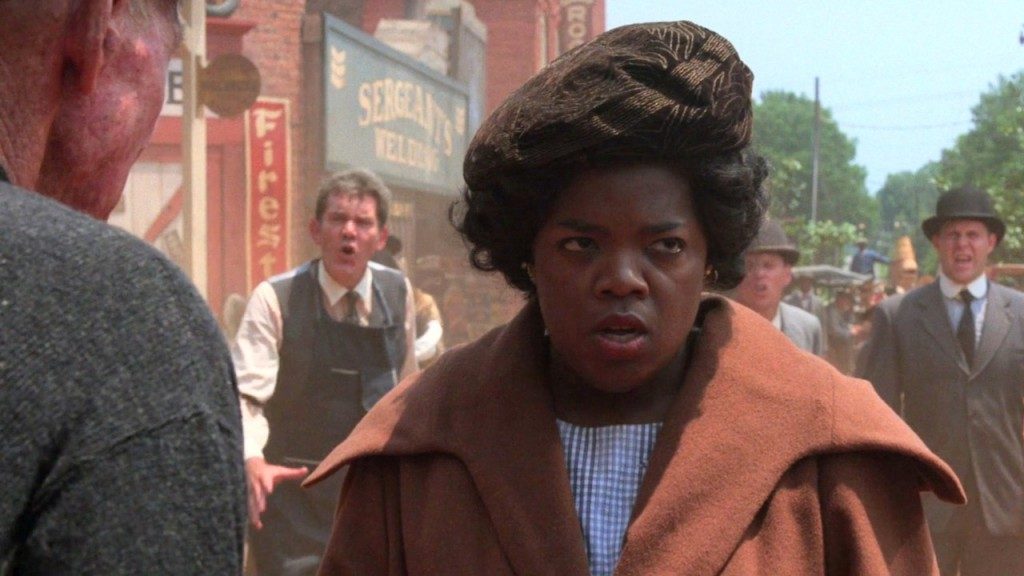
Based on Alice Walker’s Pulitzer prize winning novel, this film directed by Steven Spielberg deals with a systematic dual oppression. The protagonist Celie endures rape at the hands of her father, and later mistreatment at the hands of Mister and his children. While this film explores a time period when blacks were not persecuted directly by society, it shows a much more insidious time era when they were not accepted by society at all merely because of their skin color. A powerful film with even more powerful roles, it becomes an exercise of Celie’s strength as she emerges from her torturous ordeals to find love, happiness and reconciliation with her family.
2. Mississippi Burning (1988)
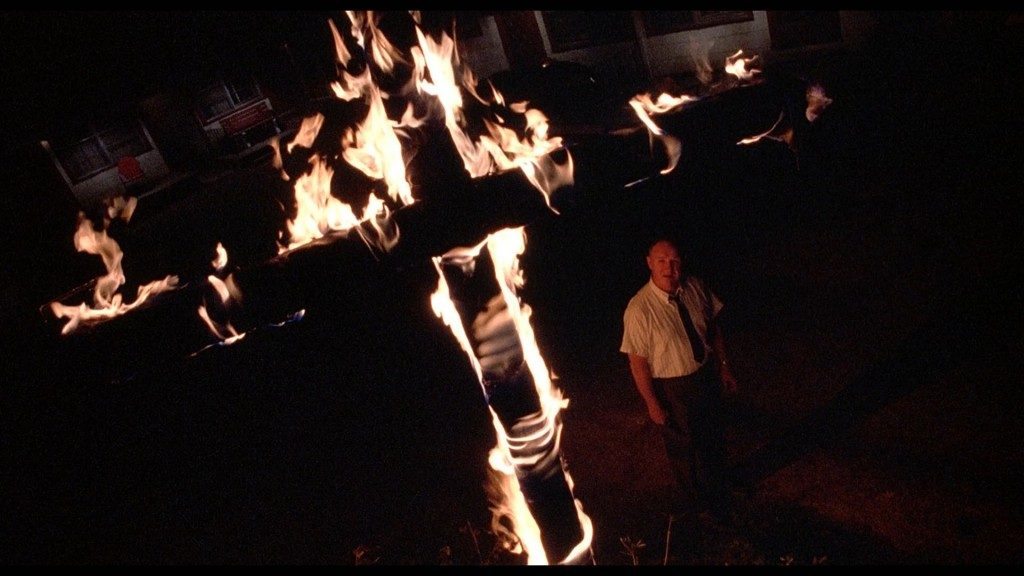
Directed by Alan Parker this film is based on a time period when black people were one of the most persecuted groups in the southern states. The Ku Klux Klan with its racist agendas was at its peak at this time and the film pulls no punches in depicting the brutality of the killings that the black people had to face at the hands of the Klan. There are scenes depicting lynching, brutal deaths of black people. It follows two FBI agents, played by Gene Hackman and Willem Dafoe, who go to investigate a series of ethnic crimes. They find the authorities and townsfolk uncooperative and the attacks continue. While the film ends with the perpetrators receiving some form of justice ,the message remains clear that the problem was far from over. The cold indifference of the Klan remains with the viewers long after the movie has ended and reminds us the tyranny that the black people had to face at the hands of an organization that can only be called terrorists by any humanist.
1. Django Unchained (2012)
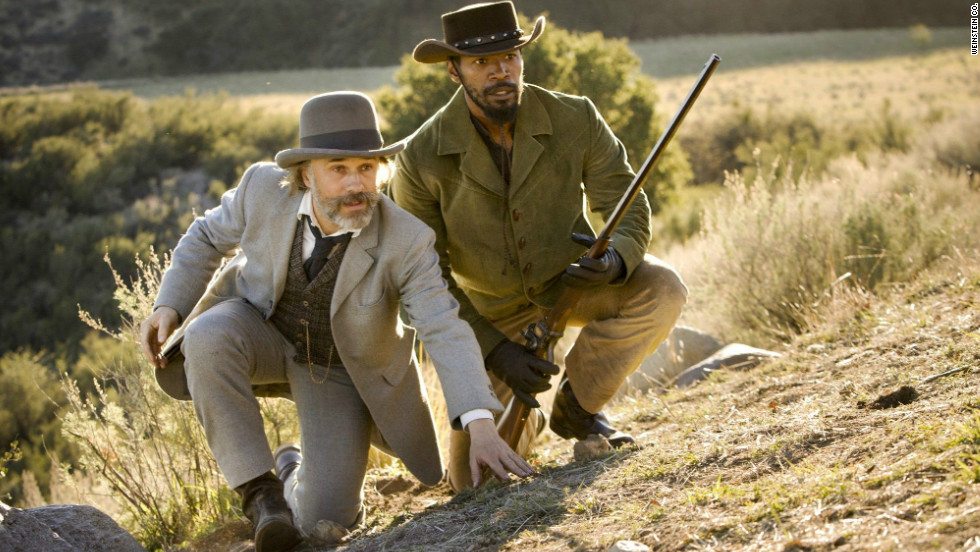
Tarantino is a diverse director and he deals with a multitude of issues with a deftness that draws our attention. His film starring Jamie Foxx as the titular character takes place in America and is set in a period when slave trade was legal. Django is a slave freed by Dr Schultz, played to perfection by Christopher Waltz, a bounty hunter. They join forces but they have their personal agendas. Django wishes to free his wife from slavery and well, Schultz is in it to collect more bounties. Their exploits lead them to Monsieur Candie’s farm. Calvin Candie played by Leonardo DiCaprio is a sadistic plantation owner whose cold interior is masked by a jovial façade. Tarantino takes us to the very heart of the south and shows the inhuman working conditions of the slaves and the punishment they were often subjected to. Django becomes a hero of his own race, saving his fellow brothers. The film shows the persecution of black people during a period when slavery was legal and they were considered not as people but commodities. Tarantino beautifully humanizes each character to make the film a visual and narrative delight while keeping his message clear to all the viewers.
Read More: Best Black Movies of All Time

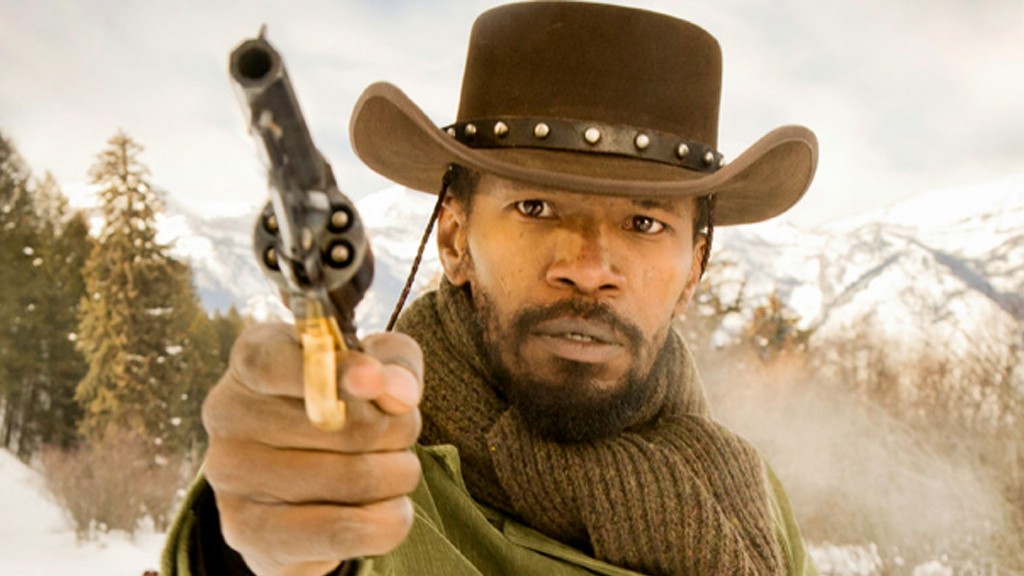
You must be logged in to post a comment.